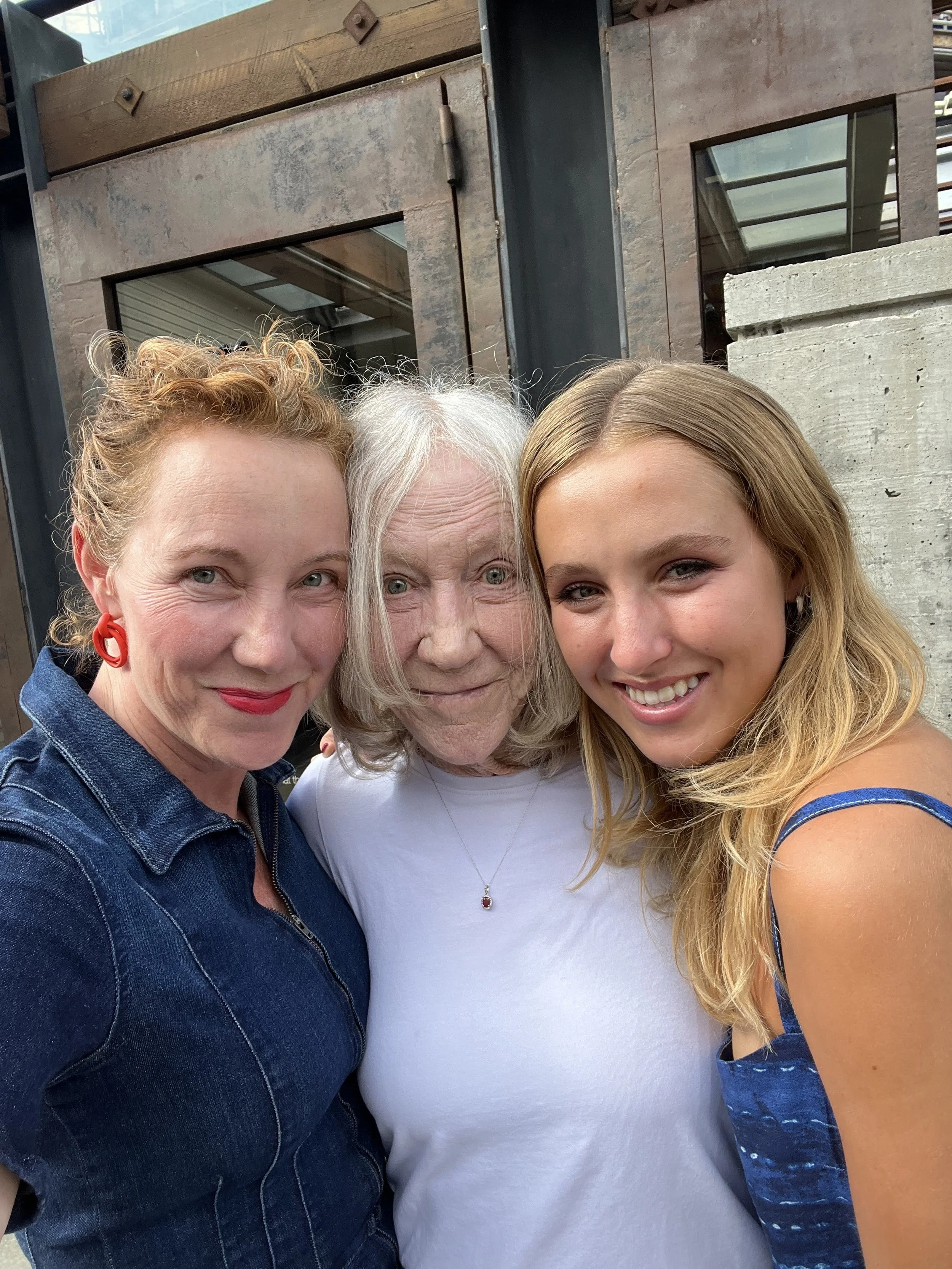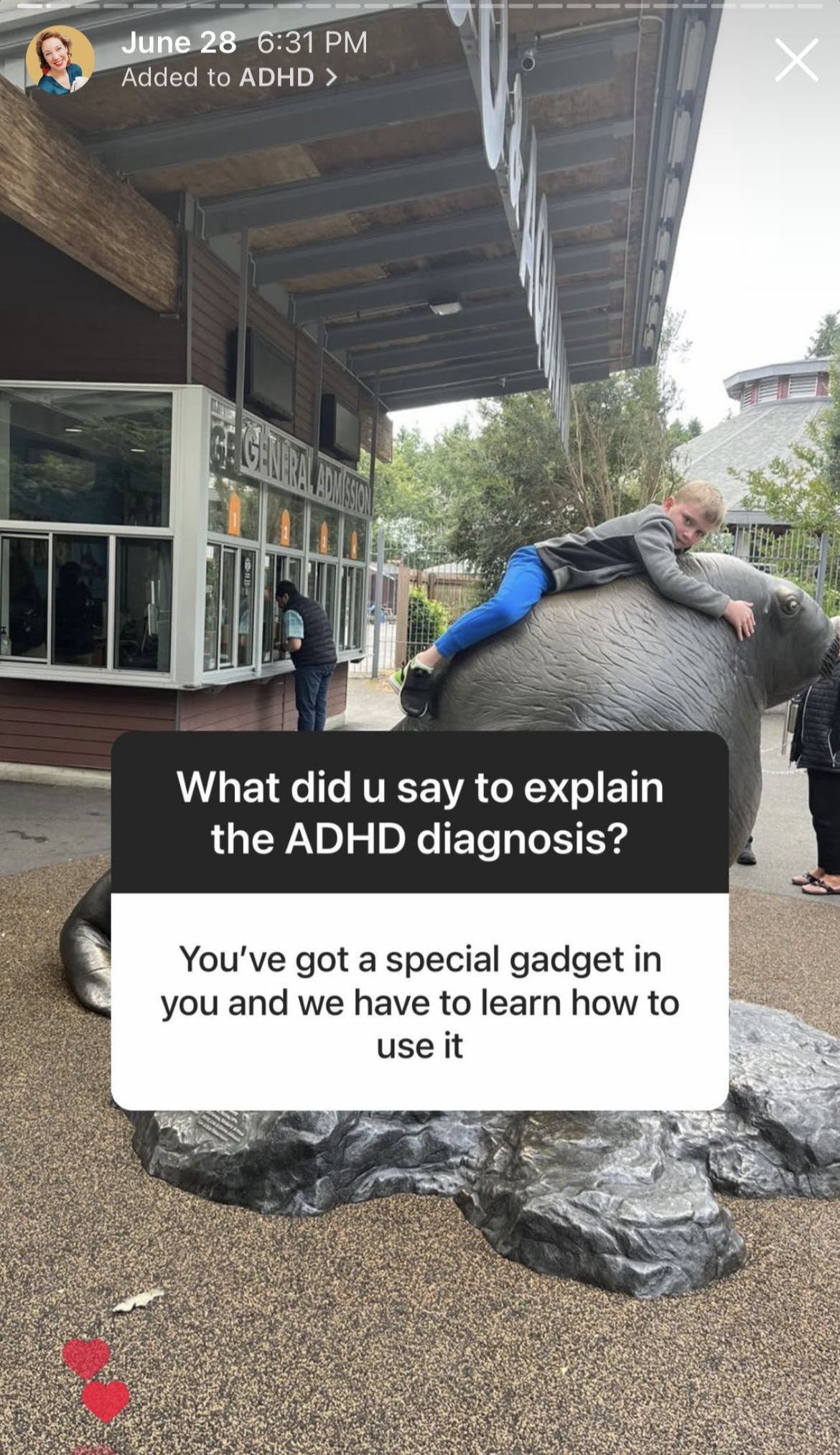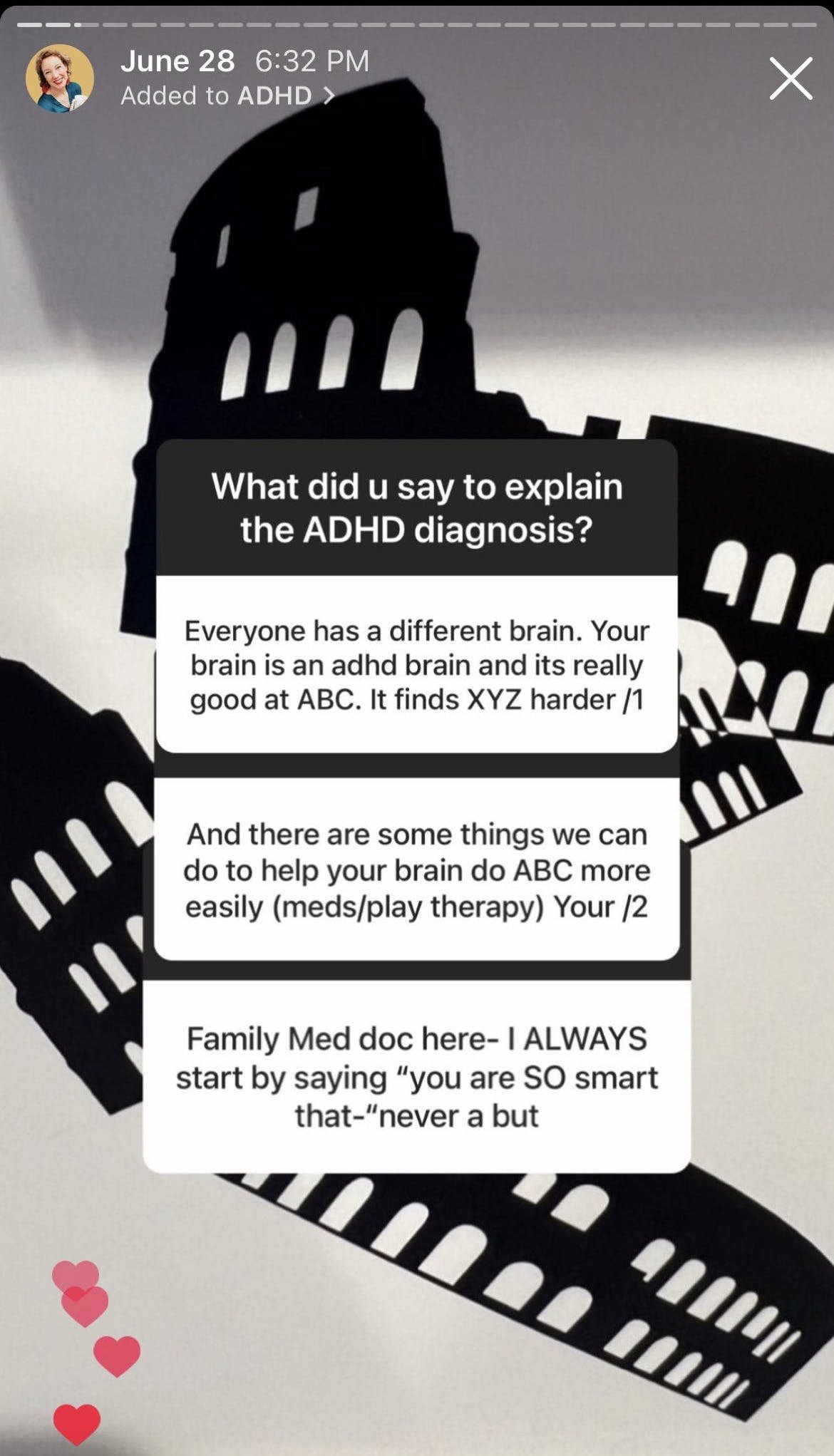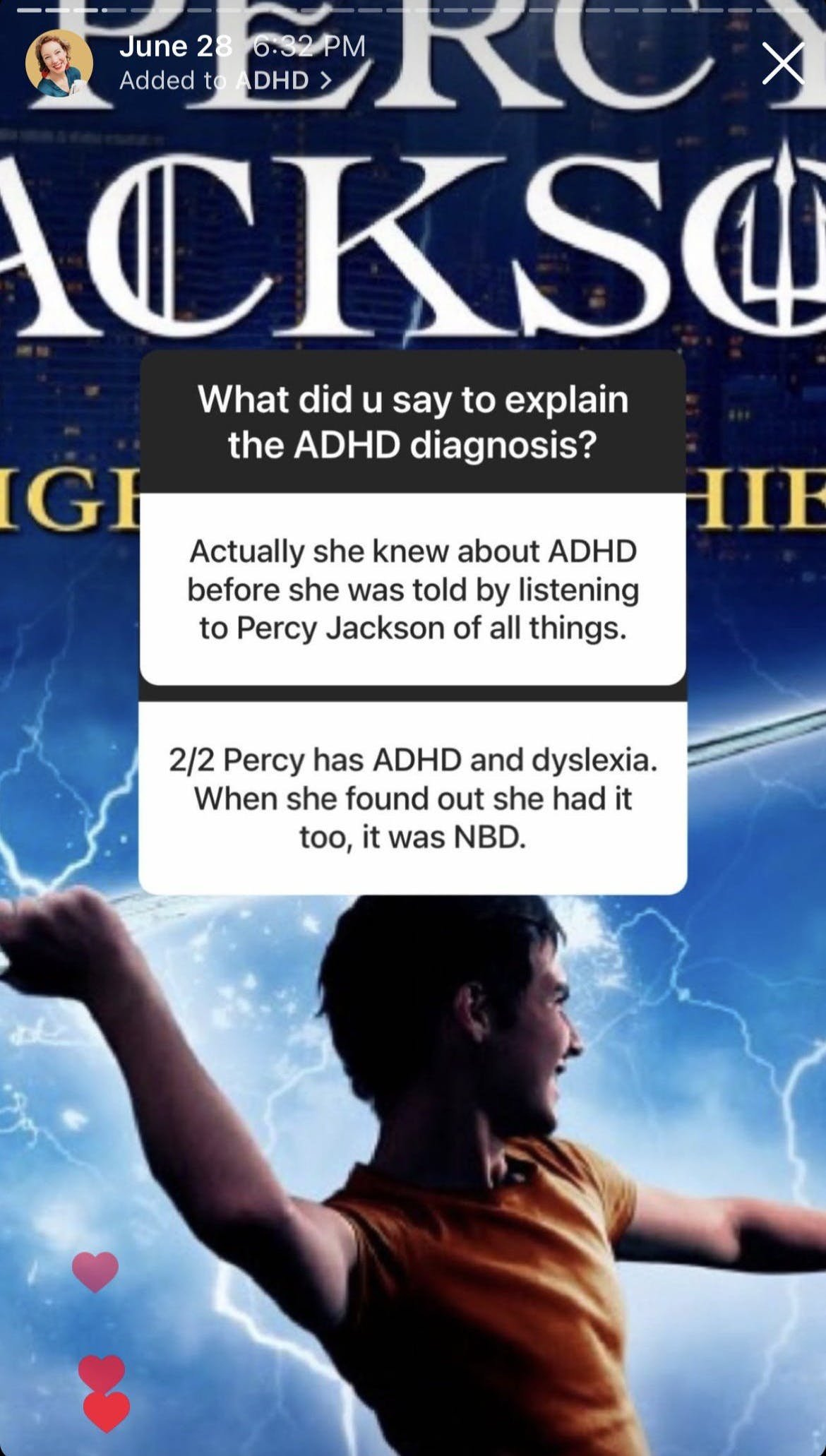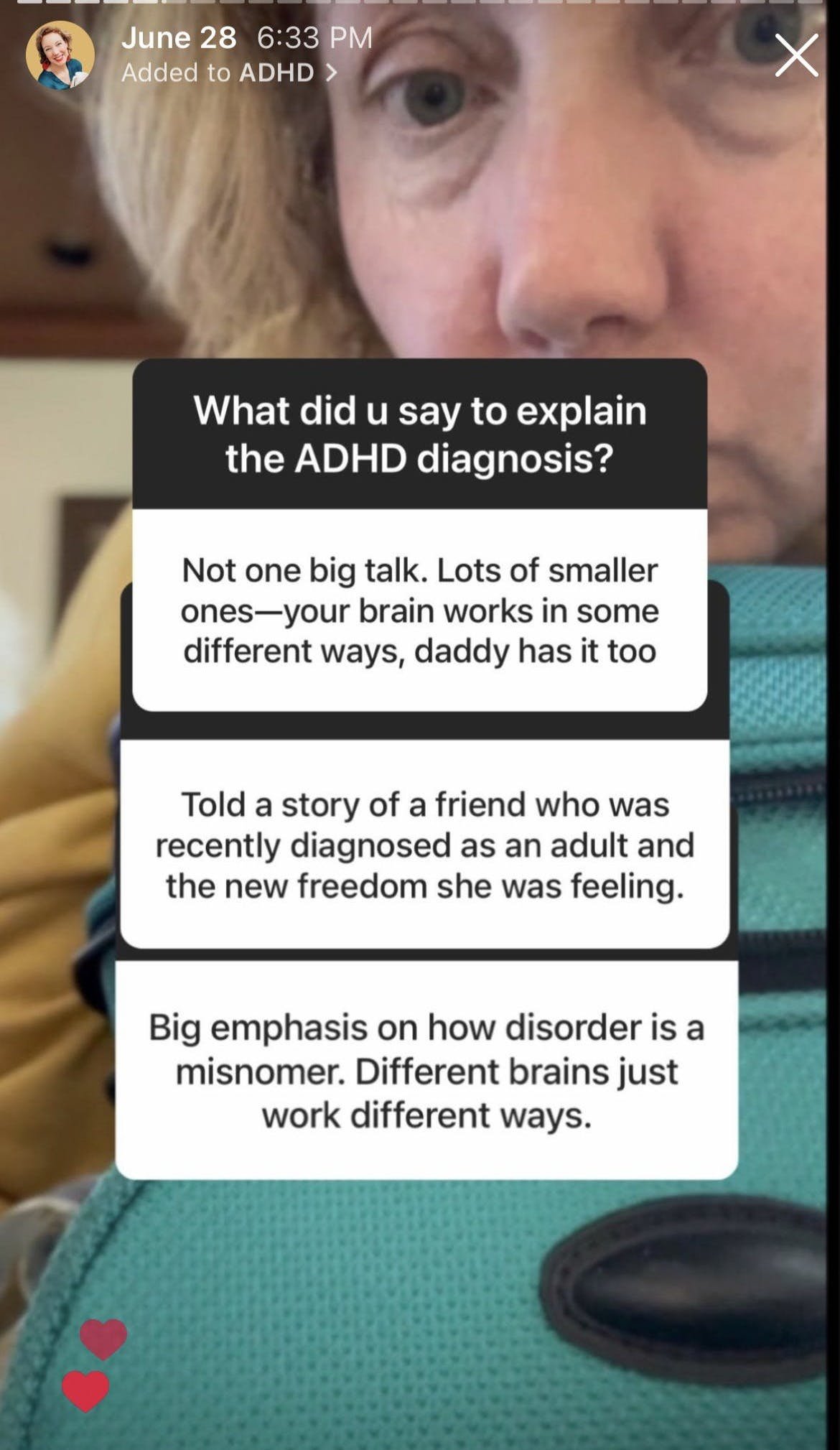Talking to kids about differences
Did you know that my freshman year of college, I got rejected from every single sorority I wanted? It was rough.
I called my mother in tears, and she told me something I’ll never forget. I’ve found it helpful navigating the world as my wild, creative self.
“Mary, you’re a very big personality. People throughout the rest of your life will either love you or hate you – there will be no in between.”
Now, to be clear – I don’t recommend this exact speech – however, in my dynamic with my mom, this was a watershed moment. She was compassionately attempting to help me understand myself in relation to the world.
Last week, I promised you I’d share some crowd-sourced questions, ideas, and scripts for how to talk to your kids about differences – in themselves or others.
And since my expertise extends only to fellow Spicy Ones™ and parents of Spicy Ones, I’m callin’ in the big guns below to do the heavy lifting when it comes to discussing differences outside my lived experiences.
So, let’s start here – if you are a parent to a Spicy One, and you’re wondering if or how to tell them that you find them particularly difficult to parent, my advice is…don’t!
They remind you of your brother or ex-best-friend? You’re easily triggered by them? Understandable! But that’s actually not their business.
That’s your journey, and they don’t need that added burden on theirs. Your peers and/or your therapist are better suited to explore that reality with you. (Or find community with fellow Moms of Spicy Ones™️ in my spring group program – you can join the waitlist here.)
Another question I was asked recently:
Does my own daughter know that I call her a Spicy One? Is it okay to use that language to describe my kid – around my kid?
Three generations of Spicy Ones
My response: it totally depends on whether it is said and received with admiration – or derision.
My daughter doesn’t want to be called that to her face. But other kids may love the label.
As I shared last week, the term ‘Spicy One’ is not a diagnosis – it’s a description of a person who is a catalyst for you to do your personal work in order to both thrive together.
For my client’s daughter with an artistic temperament (highly sensitive, highly expressive), that could sound like, “You feel things deeply. And you feel others’ feelings along with yours and that can lead to you feeling overwhelmed faster than other people.”
Now, when it comes to other differences – visible or invisible – the common consensus among experts is that we want to equip our children with an evolving, developmentally-appropriate narrative. Sometimes we are describing something for them before their peers do. Sometimes we are responding to things that come up along the way.
This is never one conversation – it’s lots of little ones, and often the energetic and emotional reassurance you are conveying is more important than the actual words.
Accepting their experiences and all their feelings about them helps to normalize them and supports them in moving through challenges in real time.
All right, time to hand the mic over to the experts. Take it away, ladies!
If you’re looking for support teaching your kids about visible differences in themselves or others, I commend to you the work of Amy Webb, @thislittlemiggy on Instagram. Her Charley and Emma books are excellent resources for striking up intentional conversations at home. Here’s a link to one about summer camp that dreams about inclusive places for all!
Amy gives the caveat that kids with differences aren’t obligated to explain themselves to anyone – so know that just because you ask someone politely doesn’t mean you’re entitled to an explanation.
If we’re talking sensory processing, ADHD, Autism or other neurodivergences, we want to equip our children with words that support their specific challenges. If your child is in a typical setting, having an easy way to describe their differences or needs to others that feels positive and empowering is an important part of helping shape their internal narrative.
Here’s a helpful and humorous video from the Holderness Family you can watch with your kids to normalize the ADHD diagnosis and talk about the pathologizing labels we often have to take on to get support.
And a sample script from from Kimberly Mahurin of @autismmethidofhope on Instagram: “You get to decide who you are and who you want to become because you are uniquely you. You can do something that no one on this earth can do – just by being and becoming the best version of yourself."
Kelle Hampton, (@etst on Instagram) mother of an effervescent daughter with Down Syndrome and author of the memoir Bloom, suggests saying something like, “you have this unique thing about you and it’s worth celebrating because it’s so special. We love this thing about you and we know lots of people who have it, too. Let’s look at accounts and photos of other people with Down Syndrome.”
I hope this was helpful!
P.S. This summer we crowdsourced responses on Instagram about how you talk with your kid about some differences. See below for some of those responses!
P.P.S. With all the heaviness and violence in the world right now, may you allow yourself emotional release through crying. Here’s a link to my Permission to be Sad Playlist.
In Case You Missed It
This summer on Instagram...


